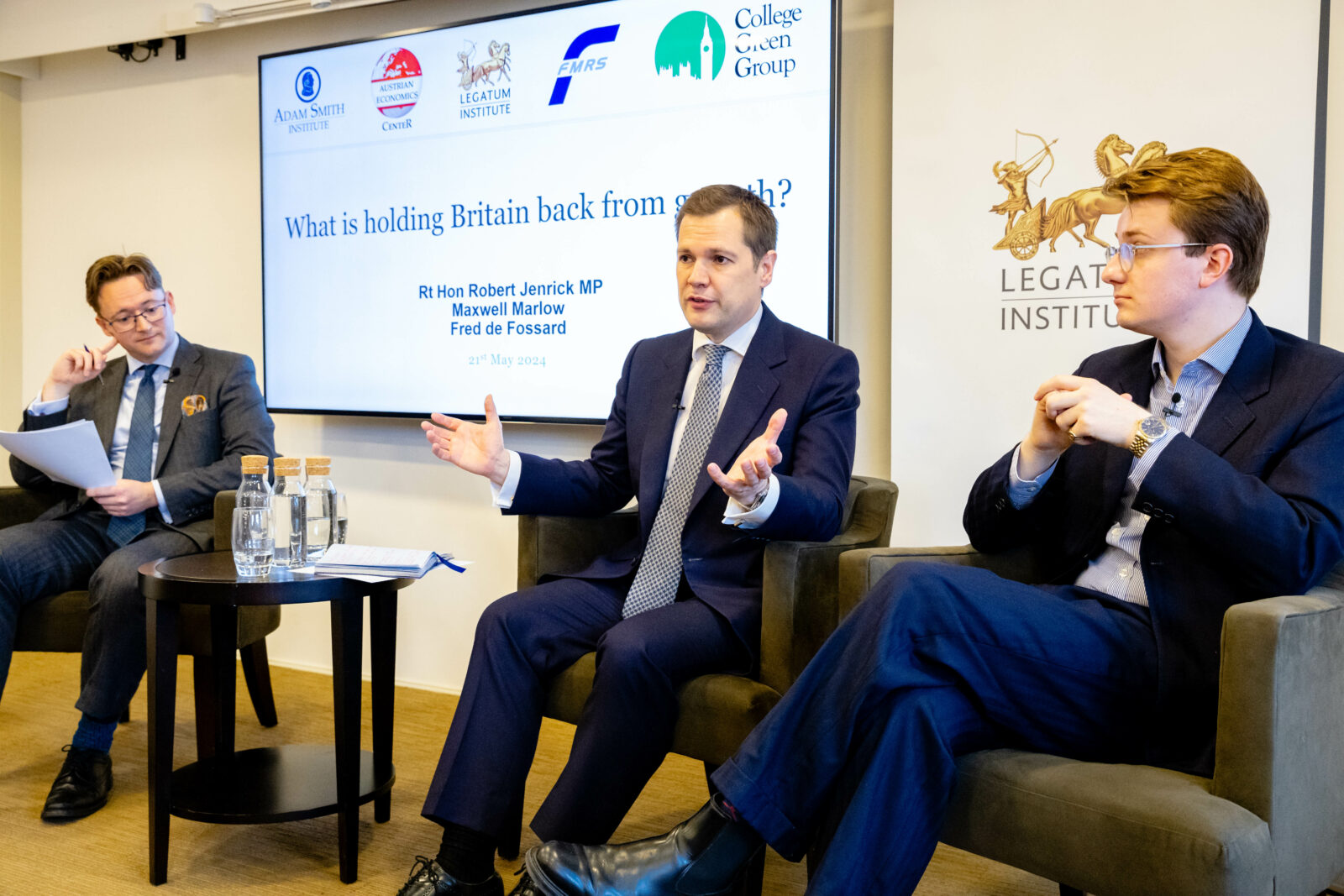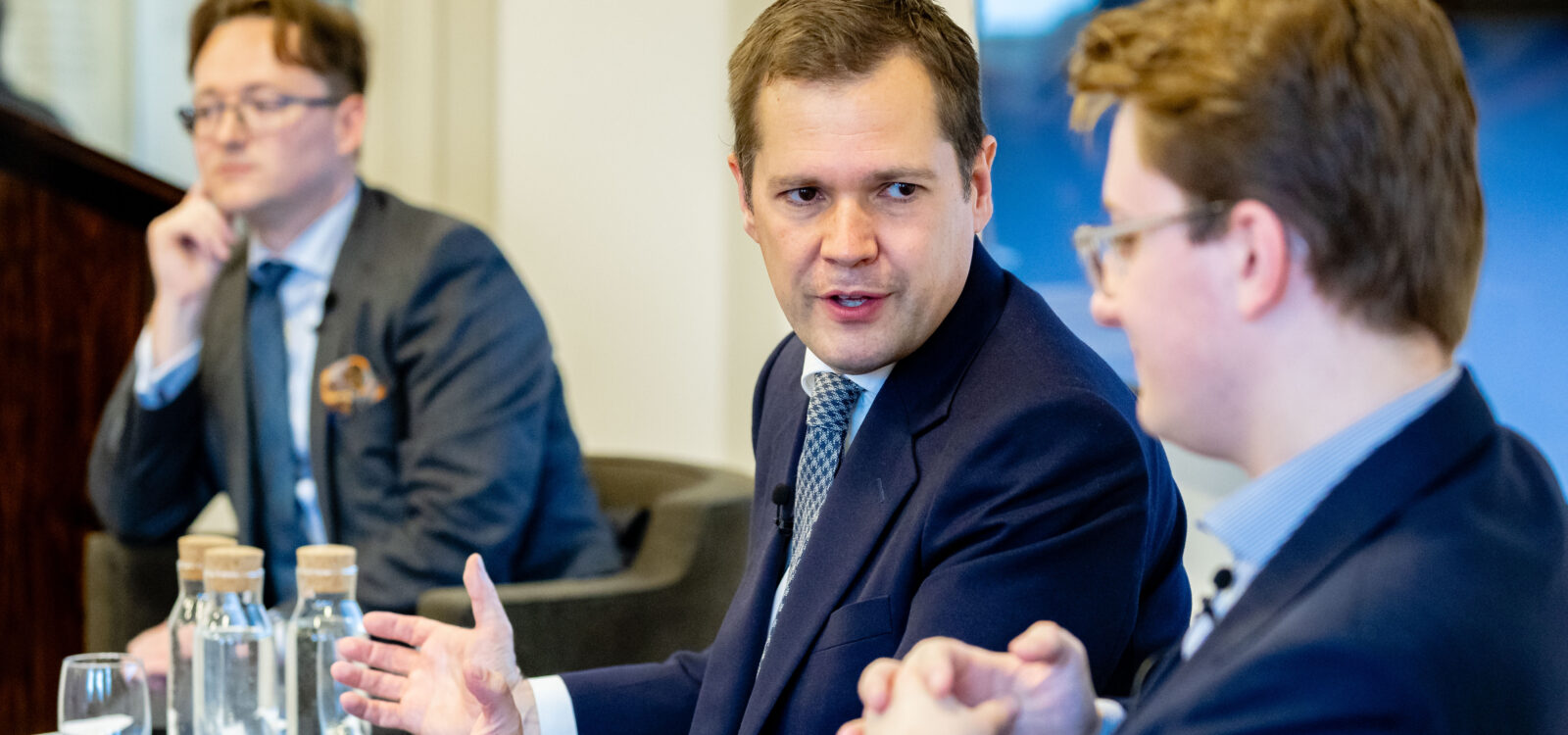The argument that I've been trying to make in recent years, both as Housing Secretary, and then latterly on immigration comes together in the insight that our economic model is essentially broken.
The model that we have enjoyed that we have lived with for 30 years is simply not working. And there are many threads that run through that, but two are that mass low-skilled migration is not driving economic growth and productivity growth in this country, or indeed any other country in the World that is trying it. And secondly, which I’d like to talk about more today, the spiralling energy prices that we have and have had in this country for the last 20 years are holding us back. And those two coming together, mass migration and out of control, uncompetitive energy is making this country poorer. And you can see that in the statistics.

In the last 20 years, industrial electricity prices have risen more than three fold. The amount of mass immigration we’ve had has also risen exponentially. In the 25 years since 1997 net migration to this country has been 5.9 million. In the 25 years prior to 1997, it was just 68,000. And how’s the economy performed in this period? We’ve entered a period of the lowest productivity growth in this country since the industrial revolution, 250 years ago. Since 1997 GDP growth has been 1.2 per cent per anum, barely half the long-term rate the previous half century. Today, we would, we would kill for 1.2% economic growth. But that is not the way to make a sustainable, rich, affluent, prosperous society, which is what everyone in this room and everybody in the country wants to seek.
So, I think on both of these fronts, and others, we have to do something fundamentally different. And I have tried to argue that the first step in that is to get control over our immigration system, and to build something which is highly selective, where we are the grammar school of the Western world, not a country that is closing its doors to the best and the brightest, but it’s thinking carefully about who we want to bring into this country, who will genuinely drive economic growth, who will be net economic contributors to this country, and who above all, will make our own citizens wealthier, healthier, happier. And that means a different system to the one that we have had for most of my adult life. But that isn’t enough.
And the discussion, I think today is not primarily about that, it’s about other things that we can and should do. And one of them, I think, is to change our energy model. Because the model that we have had, for at least the last 20 years is clearly not working. It is making us poorer, it is leading to high levels of energy prices for our own citizens. And that, of course, has come home to roost most prominently since 2021, when we’ve had this energy spiral, which is both meant that our own citizens have had to pay far more for their energy, and the state has intervened in a way which is unprecedented in modern history, making it so much more challenging to reduce the size of the state, to do the tax cuts that most of us here would like to see. But in particular, the policies that we have pursued in recent years have led to a degradation of our industrial base and that worries me on many different levels.
It worries me because I believe we have to reindustrialise as a country. We’ve got to ensure that we have those jobs and investment here in the country. We are far too economically unequal as a country. Far too much focused here in London and the South East. And if you believe in the mission that was once known as levelling up, then you’ve got to have an industrial base in all parts of the United Kingdom. And I also worry that we are essentially losing our strategic industries to our adversaries elsewhere in the world. For example, we’re trading dependence on Russian hydrocarbons for dependence on cheap Chinese electric vehicles. This is something which even the Biden administration in the United States now seems to have you woken up, with some of the actions that it’s been taking in recent weeks. So, we’ve got to change that.
How do we begin to do this? At the heart of this is our planning system, and that is something that I care about very strongly. But it also speaks to the energy challenge that we face.
We are smothering our ability to build new nuclear power stations, to build new gas power stations, which we’ve got to have to have the base capacity that we need as a country, in this mesh of regulation. This has been bad for a long time, but I think it’s getting worse. And just let me give you a few examples of our attempts in recent years to build new nuclear power stations, for example. At Hinkley the biggest construction site in Europe today, our regulator for nuclear has insisted on 7,000 design modifications. The environmental impact assessment for how we handle fish has run to 30,000 pages. We have asked the proponents of that scheme to make changes, which will cost tens perhaps even hundreds of millions of pounds to protect as few fish as a single trawler might capture in a year. And this, after all, is a project which is supposed to reduce emissions and protect the environment in the long term, but of course, there’s no balance in the way in which we’re pursuing this. And then our fledgling second project at Sizewell C, is going to be even more burdensome and overregulated than the one that we’re already pursuing. The planning application for that is three times larger than the one in Somerset
This is not a way in which to run our economy. It is not a way in which to take forward Net Zero or any sensible energy policy. So, I think we have to radically change our planning system, restore balance and common sense to it so that we can meet the needs of our population. I think if we don’t do this, to summarise, we are going to put immense pressures on our own citizens, making their lives more difficult with ever rising energy bills. We are going to make it impossible to reindustrialise our economy. We’re going to continue to lose strategically important industries, which is the wrong thing for our country, the wrong thing for our energy security in the years ahead. And that is a price I’m not willing to pay. And I think we as conservatives, free market advocates, who want to see Britain, like other great countries around the World, fighting fit for the future, have to take action to change this.
Thank you.



